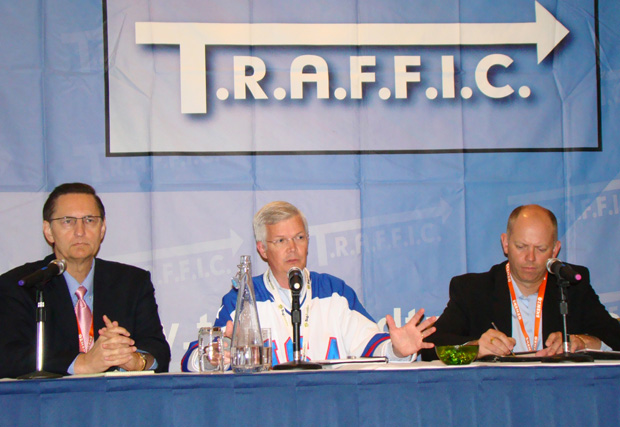- Impact
- 114
http://www.dnjournal.com/lowdown.htm

(L to R in the photo above) Ron Jackson (DN Journal), Ken Hansen (Neustar, operator of the
.US registry) and Steve Smith (registrar Webnames) discuss the prospects for .US and .CA.
Please provide an overview of this and discuss in the greatest detail possible.
Signed
Jaco
After Latona's opening comments, the show's first business session got underway with Neustar's Ken Hansen and Steve Smith of WebNames joining me in a panel discussion titled ccTLDs are Taking Over the World - Is North America Immune? The session, moderated by Rick Silver, covered the prospects for America's .US extension and Canada's .CA as they try to gain recognition on a continent where they have been overshadowed by .com.

(L to R in the photo above) Ron Jackson (DN Journal), Ken Hansen (Neustar, operator of the
.US registry) and Steve Smith (registrar Webnames) discuss the prospects for .US and .CA.
With conference activity to cover almost around the clock, I won't have time to get into the specifics of the business sessions until we produce our comprehensive conference review article a few days after the conference ends but I can say that the overall consensus from this seminar was that .US and .CA are both making slow but steady progress as more businesses use the extensions (in the case of .US, Maserati.us, Shell.us, Transamerica.us, Hitachi.us, BASF.us and Carrabas.us are just a few examples) and search engines giving them favorable positions in local search results.
Please provide an overview of this and discuss in the greatest detail possible.
Signed
Jaco






